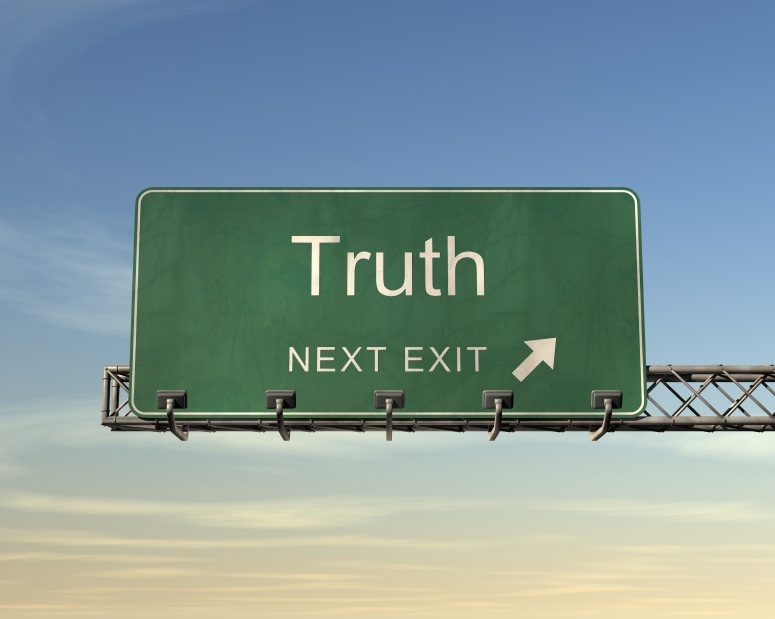
Total read time: 2 minutes 49 seconds.
"The truth is incontrovertible, malice may attack it, ignorance may deride it, but in the end; there it is." -Winston Churchill
Truth is a complete defense to a claim of defamation.
It is the great equalizer in any libel or slander suit. It is what the plaintiff’s defamation lawyer fears the most; that what his client’s accuser says is true. It does not matter that the defendant made the statement out of malice or out of bad faith, so long as the statement is true. Washer v. Bank of America (1948) 87 Cal.App.2d 501, 509; Campanelli v. Regents of Univ. of Calif. (1996) 44 Cal.App.4th 572, 581; Rest. 2d, Torts § 581A; Francis v. Dun & Bradstreet (1992) 3 Cal.App.4th 535, 540 (credit report, even one causing harm, is not defamatory if true); Ellenberger v. Espinosa (1994) 30 Cal.App.4th 943, 953 (statements as to dentist’s misconduct were true given Board of Dental Examiner’s determination that dentist had been grossly negligent and in violation of provisions of Business and Professions Code).
So what does it mean to establish truth? Does that mean the defendant must establish the truth of his statements in every particular? Surprisingly, the answer is no.
It is sufficient if the defendant proves that the substance or the "gist" of the statement is true. Heuer v. Kee (1936) 14 Cal.App.2d 710, 714; Gantry Const. Co. v. American Pipe & Const. Co. (1975) 49 Cal.App.3d 186, 194 ("The concept that it is the gist or sting of the alleged defamatory statements that must be false rather than the specific details of the charge is deeply rooted in our common law."). Weller v. American Broadcasting Cos. (1991) 232 Cal.App.3d 991, 1009, footnote, 17; See Campanelli, supra (admission that plaintiff basketball coach engaged in tirades so bad that seven players were thinking of quitting established truth of defendant’s assertion that players "were in trouble psychologically").
But who bears the burden of proof? The previous rule in California was that the plaintiff needed to plead that the statements were false. This is no longer required. The burden of pleading and proving that the statements are true rests squarely on the shoulders of the defendant. See Lipman v. Brisbane Elementary School Dist. (1961) 55 Cal.2d 224, 233.
If you liked this post please subscribe to the California Defamation Law Newsletter to receive a free copy of "The Ultimate Beginner’s Guide To Defamation Law."

Truth is not a defense if the defendant’s lawyer does not provide evidence of truth, and does not challenge the plaintiff to provide evidence of allegations. Then the plaintiff goes to court and insists on his version (still, no evidence other than an affidavit from the lying plaintiff).
That happened to me when I was represented by Thomas A. Trapani and Lisa Hutton. It should have been a simple anti-SLAPP but the lawyers never bothered to learn and follow the requirements. They never challenged the complaint, for starters, which was not specific as to the alleged defamation (i.e, when, where, what).
Gloria Grening Wolk MSW
Great articles on this site. Just wanted to get your thoughts on this, although I know what you say does not constitute legal advice.
Is it feasible to set out in the “terms of use” in a blog that use of the blog is a limited license and by accessing the blog the user agrees to waive any and all claims, including defamation? Just a thought
im doing a research on defenses of defamation..im to come up with the strengths and weaknesses of truth and fair comment as defenses
Is truth really a defense? I posted a true statement about a private indivdual, however, this indivdual is sueing me because he believes I posted it to defame him. Futher, he states that because his private matters are not of public interest it’s considered defamation. So in my case it doesn’t look like truth is really a defense….however, my case continues and is not quite done. We’ll see I guess.
My past employer has filed false reports to prospective employers. He lied, under oath, during my unemployment hearing. The ALJ ruled in my favor due to the employers lack of credibility.
The past employer has submitted a false claim on my DAC report with Hire Right.
I, on the other hand, have made internet postings in regards to the past employers lack of virtue, moral compass, principles, etc, that he did not possess when he made false claims against me and continues to maintain.
If truth is my defense, what is his?
I am being sue for defamation by a contractor that worked at my daughter’s home and ripped her off. I posted what he di to her and how he took money and did not complete the job then walked off the job. I stated many i \opinions of mine and also stated things I read from other unhappy customer posts that they authored and posted on public forums. I have copies of several others posts and my [posts to prove what I said was already posted before I said these things. Can I win my case? Do I really nee to hire a lawyer? Can I counter sue to get my money back from the plaintiff?
Please contact our office for assistance 626.793.8607.